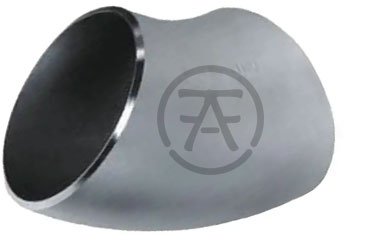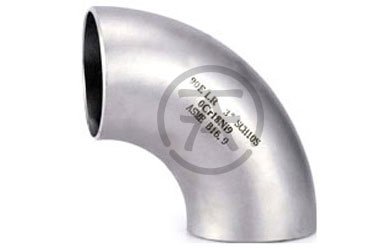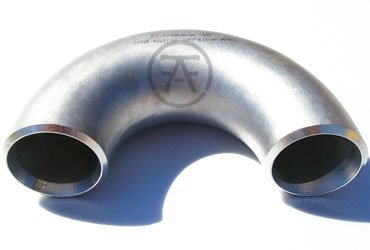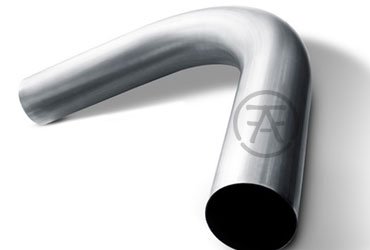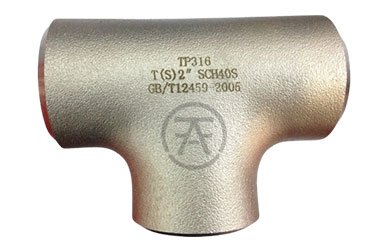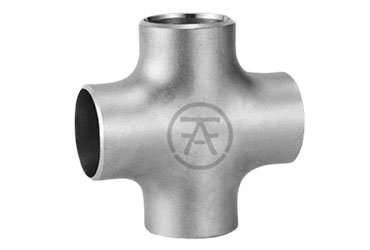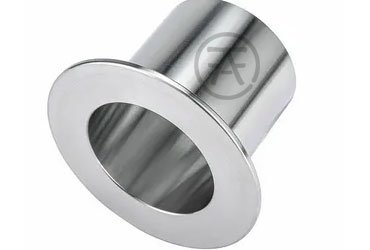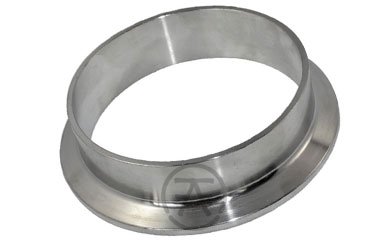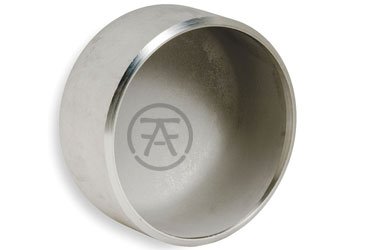
ASME B16.9 Buttweld Pipe Fittings Manufacturers and Suppliers:
MSS-SP 43 and ASME B16.9 Buttweld Fittings are used for a piping system where the diameter is above 2 inches and for smaller size pipes forged threaded and socket weld fittings are used.
Buttweld Elbows are used to change the direction of pipelines with 45deg, 90deg, and 180deg being the most used elbows. to branch pipe, Tees and cross are used to increase or reduce the pipe bore size reducers do the work perfectly and to blind the pipeline butt weld caps are used.
ISO Approved ASME/ANSI B16.9 Buttweld Fittings Manufacturer In India, ASME B16.28 Factory-Made Wrought Buttwelding Fittings, MSS SP-43 Fittings, Pipe Fittings Dimensions Chart, Seamless Buttweld Fittings
ADCO Forge and Fittings is dominating player in the market of manufacturing and exporting large inventory of Buttweld Pipe Fittings ASME B16.9 in India (Asia), Middle East, and African Counties. Having complete solutions of pipe fittings that covers size ranging from NPS ½ through NPS 48 (DN 15 through DN 1200) for the industries like Chemical, Fabrication, Food Processing, Oil and Gas, Power, Petroleum, Shipbuilding, Etc.
Alloy steel and carbon steel pipe fittings dimensions and tolerances are covered under ASME/ANSI B16.9 specification. The MSS-SP 43 specification integrates ASME B16.9 to cover nickel alloys and stainless steel buttweld fittings. These pipe fittings are specified by nominal pipe size and pipe schedule. welded or seamless pipes are used to produce buttweld fittings such as tees, elbows, reducers, caps, reducers, and olets.
Stainless Steel welded butt weld fittings are more common due to their cost advantages. Similarly, as steel pipe, buttweld pipe fittings are sold from Schedule 10 to Schedule 160 and Sch 10 is the most common stainless steel buttweld pipe fittings.
Buttweld Fittings Standard Specifications
Standards
ANSI / ASME B16.9, MSS SP-43, API 590-605
Thickness
SCH10, SCH 20, SCH30, STD SCH40, SCH80, SCH60, XS, SCH100, SCH 120, SCH140, SCH 160, XXS available with NACE MR 01-75
Types
Welded | Seamless | Fabricated
Dimensions
ASME/ ANSI B16.9 | ASME B16.28 | MSS-SP-43 | BS1560 | BS4504 | BS10
Size Range
½” NB to 24″ NB in Schedule 10s, 40s, 80s, 160s, XXS.
Sizes
Seamless Fitting: 1/2″ - 10″
Welded Fitting: 1/2″ - 48″
Schedule 40 SCH 80 Steel Pipe Fittings, Weight Chart According to ASME B16.9, ANSI Pipe Fittings Price List India, NPS 1⁄₂" to NPS 48” Fittings, Buttweld Fittings Tolerance
ASME B16.9 Buttweld Fittings Types
Buttweld Pipe Fittings Material Grades
| Stainless Steel Fittings: | ASTM A403/SA403 WP Gr. 304, 304L, 304H, 310, 310S, 316, 316L, 316H, 316Ti, 317, 317L, 321, 321H, 347, 347H, 446, 904L |
|---|---|
| Carbon Steel Fittings: | ASTM A860/SA860, ASTM A234/SA234, WPB, WPBW, WPHY 42, WPHY 46, WPHY 52, WPH 60, WPHY 65 & WPHY 70. |
| Low Temperature Carbon Steel Fittings | ASTM A420 WPL3, A420 WPL6 |
| Alloy Steel Fittings: | ASTM A234/SA234 Gr. WP 1, WP 5, WP 9, WP 11, WP 12, WP 22, WP 91 |
| Duplex & Super Duplex Fittings: | ASTM A815, ASME SA815 UNS S31803, S32205, S32750, S32760. Werkstoff No. 1.4462, 1.4410 |
| Nickel Alloy Fittings: | ASTM / ASME SB B366 UNS 2200 ( NICKEL 200 ), UNS 2201 (NICKEL 201 ), UNS 4400 (MONEL 400 ), UNS 8020 ( ALLOY 20 / 20 CB 3, UND 8825 INCONEL (825), UNS 6600 (INCONEL 600 ), UNS 6601 ( INCONEL 601 ), UNS 6625 (INCONEL 625), UNS 10276 ( HASTELLOY C276 ), Cupro Nickel 90/10 ( C70600, 2.0872 ), 70/30 ( C71500, 2.0882) |
| Other Steel Fittings: | ASTM B363 Titanium Grade 2 ( R50400, 3.7035 ), Titanium Grade 2 ( N56400, 3.7165 ), ASTM A403 SMO 254/AL-6XN ( S31254, 1.4547 ), AISI 4130 ( G41300, 1.7218 ) |
Yes, you can find 180-degree elbows in various materials, allowing you to choose the one suitable for your specific application.
Yes, collars come in different materials to suit the specific environmental and corrosion resistance requirements of the application.
Yes, there are equal tees, where all three openings are of the same size, and reducing tees, where one of the branches is smaller than the other two.
No, a stub end is not intended for direct welding to pipes but rather for use with lap joint flanges.
In some cases, you can request custom bend radii to meet specific project requirements, but standard sizes are readily available.
It depends on your specific piping requirements. A 45-degree elbow provides a gentler turn compared to a 90-degree elbow, so it’s suitable for different applications.
Yes, you can use 90-degree elbows in high-pressure applications, but it’s important to choose the appropriate material and specifications to meet the pressure requirements.
A pipe bend provides a gradual change in direction, while an elbow typically provides a sharper turn. Pipe bends are used when space constraints or flow considerations require a more gradual curve.
Concentric reducers have a common centerline for both ends, while eccentric reducers have one end off-center, often used to maintain a level flow or drainage.
Pipe bends reduce pressure drop and minimize turbulence in the flow, making them suitable for applications requiring smooth fluid movement.
180-degree elbows are used to minimize turbulence and pressure drop in pipelines where a complete reversal of flow direction is required.
Cross fittings are often used in industrial processes, particularly in complex piping systems where multiple branch connections are needed.
90-degree elbows are available in various sizes, ranging from small-diameter pipes to large industrial pipes. Common sizes are specified by nominal pipe size (NPS).
These terms refer to the radius of curvature of the elbow. For example, a 1D elbow has a radius equal to the nominal pipe diameter, while a 5D elbow has a radius five times the nominal pipe diameter.
A cross fitting is used to create a branch in a pipeline with four openings at right angles to each other, allowing for the flow in multiple directions.
Collars are used to reinforce and provide additional support to the end of a pipe, especially in high-pressure and high-temperature applications.
A 45-degree elbow is used to change the direction of a piping system by 45 degrees. It’s commonly used to avoid sharp turns in pipelines.
A buttweld tee is used to create a branch in a pipeline, allowing the fluid to flow in three different directions.
45-degree elbows are available in various materials, including carbon steel, stainless steel, and alloy steel, to suit different environmental conditions and fluid types.
End pipe caps are commonly made of materials like stainless steel, carbon steel, and various alloys, depending on the application.
Stub ends are used in conjunction with lap joint flanges to create a loose or rotating joint, ideal for applications that require frequent disassembly.
An 180-degree elbow is used when you need to reverse the direction of flow completely, creating a U-turn in the piping system.
The choice depends on the space available and the desired flow characteristics. A 1D elbow is more compact, while a 3D elbow provides smoother flow.
A 90-degree elbow is typically used when you need a right-angle turn in your piping system, such as changing the direction of flow or connecting pipes at right angles.
Reducers are used to connect pipes of different sizes or diameters, allowing for a smooth transition in the flow of fluids.
End pipe caps are used to seal the end of a pipe, preventing the entry of dust, dirt, or foreign materials and protecting the contents of the pipe.
MSS SP-43 Buttweld Fittings Applications
Oil and Gas
Nuclear Power & Defence
Petrochemical
LNG
Desalination
Mining & Minerals
Myanmar, Nepal, Thailand, Vietnam, Philippines, Malaysia, Indonesia,
Singapore, Taiwan, Tasmania, Sri Lanka, Bangladesh, Bhutan, Cambodia,
Australia, New Zealand, Afghanistan, Tajikistan, Kyrgyzstan, Kazakhstan,
Uzbekistan, Turkmenistan, Iran, United Arab Emirates(UAE), Saudi Arabia,
Oman, Yemen, Iraq, Azerbaijan, Turkiye, Syria, Lebanon, Israel, Kenya,
Egypt, South Sudan, Eritrea, Djibouti, Ethiopia, Libya, Rwanda, Mali,
Niger, Chad, Central Africa Republic, Nigeria, Cameroon, Somalia, DRC,
Uganda, Tanzania, Angola, Zambia, Madagascar, Malawi, Namibia, Benin,
Zimbabwe, Botswana, Lesotho, South Africa, Algeria, Tunisia, Morocco,
Eswatini, Liberia, Sierra Leone, The Gambia, Senegal, Mozambique, Togo,
Mauritania, Burkina Faso, Ghana, Equatorial Guinea, Jordan, Timor-Leste,
Palestine, Laos, Armenia, Georgia, Maldives, Cyprus, Kuwait, Qatar, Peru,
Bahrain, Brunei, Finland, France, Germany, Ireland, Iceland, UK, US,
Greece, Hungary, Italy, Norway, Poland, Slovakia, Sweden, Canada, Fiji,
Romania, Cuba, Panama, Brazil, Colombia, Chile, Argentina, Venezuela,
Naypyidaw, Kathmandu, Bangkok, Hanoi, Manila, Kuala Lumpur, Jakarta, Tunis,
Jurong East, Taipei City, Hobart, Sri Jayawardenepura Kotte, Dhaka, Thimphu,
Phnom Penh, Canberra, Wellington, Kabul, Dushanbe, Bishkek, Astana, Abuja,
Tashkent, Ashgabat, Tehran, Abu Dhabi, Riyadh, Muscat, Sana’a, Baghdad, Pretoria,
Baku, Ankara, Damascus, Beirut, Jerusalem, Nairobi, Cairo, Juba, Asmara, Rabat,
Djibouti city, Addis Ababa, Tripoli, Kigali, Bamako, Niamey, N’Djamena, Bangui,
Yaoundé, Mogadishu, Kinshasa, Kampala, Dodoma, Luanda, Lusaka, Antananarivo,
Lilongwe, Windhoek, Porto-Novo, Harare, Gaborone, Maseru, Cape Town, Bloemfontein,
Algiers, Mbabane, Lobamba, Monrovia, Freetown, Banjul, Dakar, Maputo, Lomé, Dili,
Nouakchott, Ouagadougou, Accra, Malabo, Amman, Vientiane, Yerevan, Tbilisi, Rome,
Malé, Nicosia, Kuwait City, Doha, Lima, Manama, Bandar Seri Begawan, Paris,
Helsinki, Berlin, Dublin, Reykjavík, London, Washington D.C., Athens, Budapest,
Oslo, Warsaw, Bratislava, Stockholm, Ottawa, Suva, Bucharest, Havana, Panama City,
Brasília, Bogotá, Santiago, Buenos Aires, Caracas, Mumabi, Chennai, Bengaluru,
Kolkata, Hyderabad, Pune, Ahmedabad, Jaipur, Surat, Visakhapatnam, Indore, New Delhi
Lucknow, Nagpur, Kochi, Kanpur, Guwahati, Coimbatore, Noida, Ghaziabad, Patna
